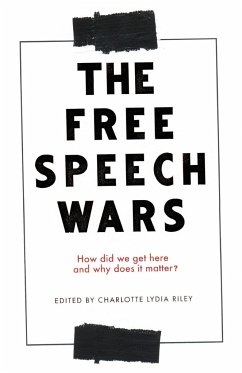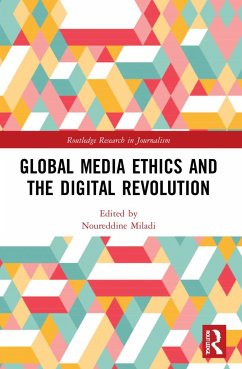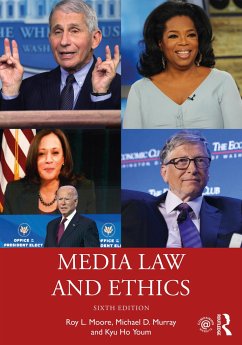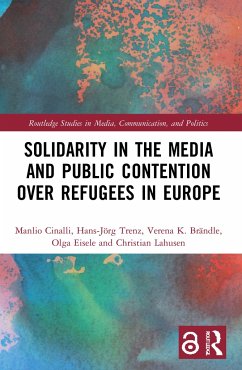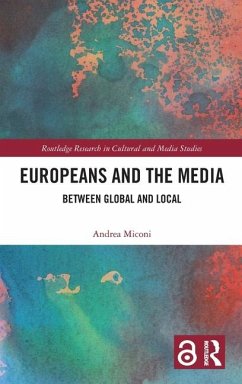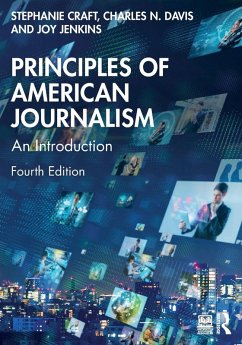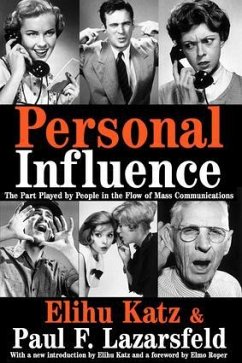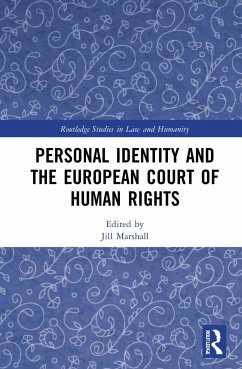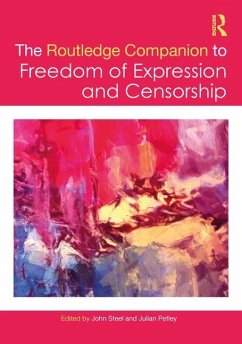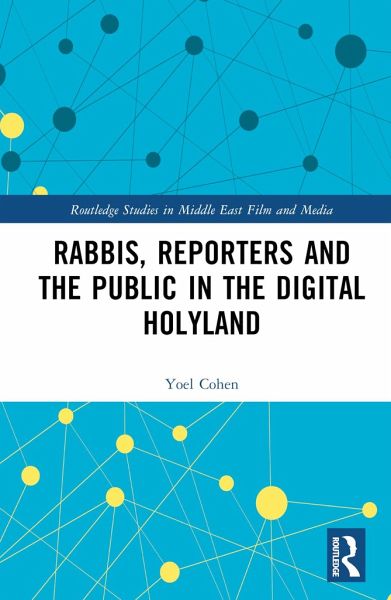
Rabbis, Reporters and the Public in the Digital Holyland
Versandkostenfrei!
Versandfertig in 6-10 Tagen
144,99 €
inkl. MwSt.
Weitere Ausgaben:

PAYBACK Punkte
72 °P sammeln!
Focused on the triangular relationship between rabbis, journalists and the public, this book analyses each group's role in influencing the agenda around religion in Israel.The book draws upon the author's original research, comprising an analysis of the coverage of religion on four Israeli news websites, a series of surveys of rabbis, journalists, and the public, as well as a large number of interviews conducted with a range of stakeholders: community rabbis, teacher rabbis, and religious court judges; reporters, editors, and spokespersons; and the Israeli Jewish public. Key questions include:...
Focused on the triangular relationship between rabbis, journalists and the public, this book analyses each group's role in influencing the agenda around religion in Israel.
The book draws upon the author's original research, comprising an analysis of the coverage of religion on four Israeli news websites, a series of surveys of rabbis, journalists, and the public, as well as a large number of interviews conducted with a range of stakeholders: community rabbis, teacher rabbis, and religious court judges; reporters, editors, and spokespersons; and the Israeli Jewish public. Key questions include:
What are rabbis' philosophical views of the media?How does the media define news about Judaism?What aspect of news about religion and spirituality interest the public?How do spokespersons and rabbis influence the news agenda?How is the triangular relationship between rabbis, journalists and the public being altered by the digital age?
Despite a lack of understanding about mass media behaviour among many rabbis, and, concurrently, a lack of knowledge about religion among many journalists, it is argued that there is shared interest between the two groups, both in support of mass-media values like the right to know and freedom of expression. It is further argued that the public's attitude to news about religion is significant in determining what journalists should publish.
The book will be of interest to those studying mass communications, the media, Judaism and Israeli society, as well as researchers of media and religion.
The book draws upon the author's original research, comprising an analysis of the coverage of religion on four Israeli news websites, a series of surveys of rabbis, journalists, and the public, as well as a large number of interviews conducted with a range of stakeholders: community rabbis, teacher rabbis, and religious court judges; reporters, editors, and spokespersons; and the Israeli Jewish public. Key questions include:
What are rabbis' philosophical views of the media?How does the media define news about Judaism?What aspect of news about religion and spirituality interest the public?How do spokespersons and rabbis influence the news agenda?How is the triangular relationship between rabbis, journalists and the public being altered by the digital age?
Despite a lack of understanding about mass media behaviour among many rabbis, and, concurrently, a lack of knowledge about religion among many journalists, it is argued that there is shared interest between the two groups, both in support of mass-media values like the right to know and freedom of expression. It is further argued that the public's attitude to news about religion is significant in determining what journalists should publish.
The book will be of interest to those studying mass communications, the media, Judaism and Israeli society, as well as researchers of media and religion.




